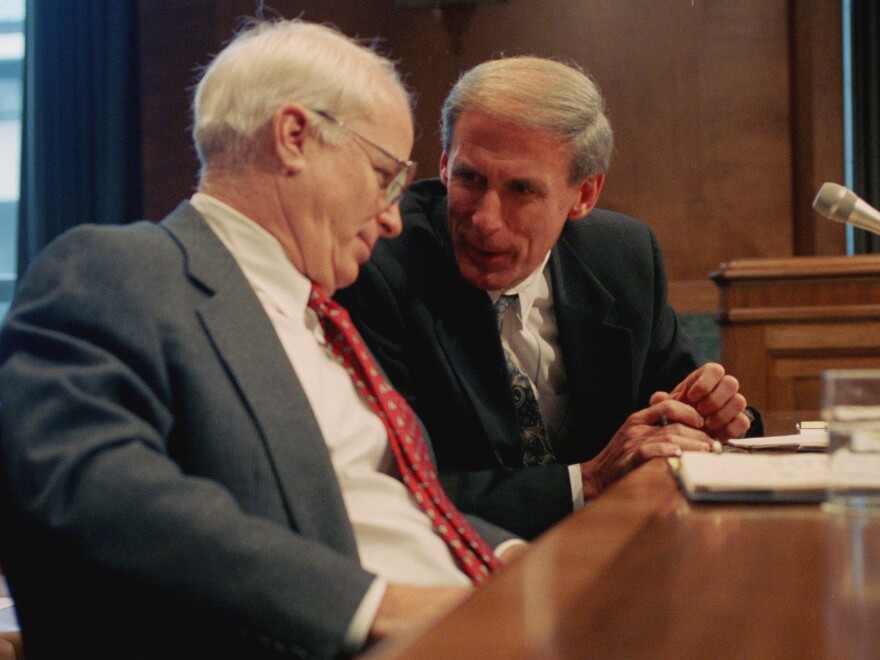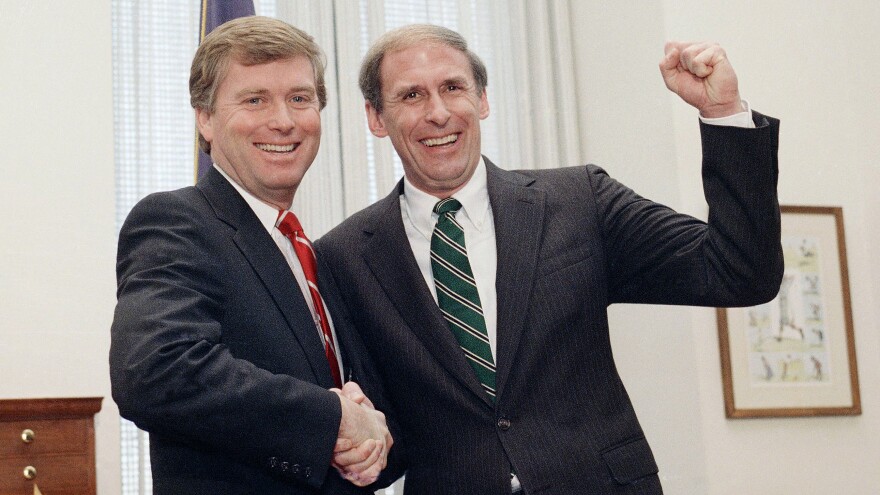Senate Republican Dan Coats of Indiana announced Tuesday — probably surprising no one — that he would not seek another term in 2016. Although he has been a stalwart Republican through a turbulent generation in Washington, Coats seems less at home in the hyper-partisan world of Congress today.
While Coats, 71, said his decision was strictly personal and age-related, he did refer to the "terribly dysfunctional Senate" in an interview with the Howey Politics Indiana newsletter.
Coats has had two tours of duty in the Senate, one from 1989 through 1998 and a second beginning with the Tea Party election of 2010. In the 1990s he was seen as a solid and reliable conservative who could occasionally cross the Senate aisle on a given issue. That was an approach to the Senate favored by many at that time.

In 1992, for example, Congress was weighing what would become the Family and Medical Leave Act. Coats, a longtime anti-abortion champion, was convinced that granting more time off to new parents would reduce the number of abortions. So he, like his anti-abortion colleague Henry Hyde in the House, embraced the family leave bill. He cast a crucial vote for it in committee and stuck with it through two presidential vetoes and a firestorm of criticism from business lobbies and social conservatives alike.
To honor a personal term-limit pledge, Coats first left the Senate in 1999. He was persuaded a dozen years later when the GOP establishment needed a challenger to Democrat Evan Bayh (who subsequently retired himself). Coats won his party nomination in 2010, defeating two Republicans who were arguably even more conservative. He won easily that November as part of the Tea Party wave of 2010.
He arrived back in Congress to find the place much altered in the dozen years of his absence. In the aftermath of the Obamacare battle, the Senate atmosphere was more brackish than it had been in memory. The filibuster, which had been used more judiciously in earlier decades, had become the minority's weapon of choice on nearly every matter of controversy.
Coats did find occasion to partner with Democrat Ron Wyden of Oregon on a proposed tax reform plan in 2011. Their balanced package was widely praised by various experts and observers but had no real chance of enactment.
These days, he is caught in a crossfire within his own party on two of his guiding principles. As a House member in the 1980s he could be comfortable supporting President Ronald Reagan's tax cuts and, at the same time, an enormous defense buildup. Now, flying with both the defense hawks who want more money for the Pentagon and the budget hawks who want to attack the deficit has become more difficult within the GOP.

Coats has been a creature of the Congress, one way or another, for four decades. In the 1960s, he graduated from Wheaton College, a religious school also attended by evangelist Billy Graham. Coats served with the Army Corps of Engineers in the Vietnam era and got a law degree from Indiana University. He worked for an insurance company before becoming a staff member in the 1970s for an Indiana congressman named Dan Quayle, primarily serving as the go-guy in the home district office in Fort Wayne.
When Quayle rode the first Reagan landslide to the Senate in 1980, Coats took over his seat in the House. Eight years later, when Quayle became vice president, Coats was appointed to take his place in the Senate. In 1990 he won the right to finish Quayle's term, and in 1992 he won a term in his own right.
Through much of his career, Coats served with Senate legend Richard Lugar, the Republican who chaired both Agriculture and Foreign Relations, and served six terms but was denied a sixth by a Tea Party challenge in 2012. Unlike Lugar, Coats remained in close touch with the state throughout his years in Washington. He was connected to all elements of the state party, including its Tea Party wing and was seen as safe for both renomination and re-election in 2016.
If re-elected in that year, of course, he would have been in office until he was nearly 80. And after spending so much of his life on Capitol Hill, Coats indicated he had other things to do with the rest of it.
Copyright 2021 NPR. To see more, visit https://www.npr.org.




